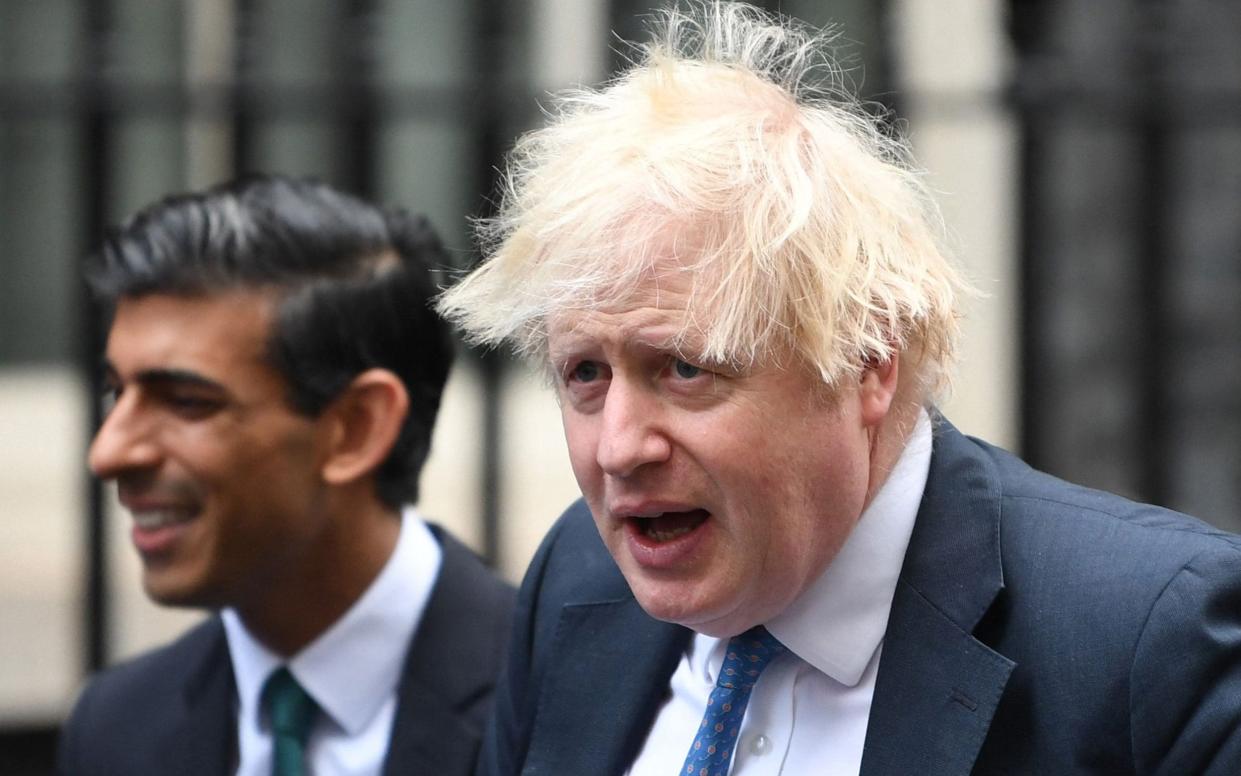Boris Johnson and Rishi Sunak to avoid soaring energy prices thanks to ‘cap’ on Downing Street bills

Boris Johnson and Rishi Sunak will escape soaring energy bills this spring due to a “cap” on contributions to their grace and favour homes.
Energy bills are expected to rise by about £600 a year when energy price cap changes come into force in April.
The changes will force households to spend a greater proportion of their budgets on gas and electricity.
Low and middle income families are set to be hit hardest, with energy bills rising sharply in recent months.
In Downing Street, both the Prime Minister and the Chancellor are only liable for a “benefit in kind” to cover heating and utilities at their official residences.
The benefit is limited to a maximum of 10 per cent of their ministerial salary and does not include their pay for being MPs. Mr Johnson receives £75,440 for his ministerial salary, while Mr Sunak gets £67,505.
Latest Treasury accounts show that Mr Johnson had a benefit of £7,500 for the Number 11 flat in 2020-21, while Mr Sunak's at No 10 was £6,800.
However, according to the Daily Mail, the actual cost to them will depend on their total taxable income and is likely to be between £3,000 and £3,300.
Treasury accounts stated: “The Chancellor and Prime Minister have the use of their official residences at Downing Street.
“Expenses relating to its use, such as heating and lighting, are chargeable to tax under the terms of the Income Tax on Earnings and Pensions Act 2003. The benefit in kind is capped at 10 per cent of gross salary.”
A government spokesman said: “As has always been the case, the Prime Minister and Chancellor are provided with residential accommodation in Downing Street.
“As agreed with HM Revenue and Customs across successive administrations, ministers then pay a tax charge for this benefit in kind, which is based on their ministerial salary.
“It is not possible to disaggregate the energy costs of 10-12 Downing Street, as it is one combined building.”
VAT cut considered as energy crisis looms
It comes as Downing Street said on Monday that Mr Johnson was in talks with Mr Sunak and Kwasi Kwarteng, the Business Secretary, over what to do about energy bills.
When asked what action was being taken and whether a VAT cut on bills was being considered, the Prime Minister's official spokesman said: "Discussions are still ongoing."
The spokesman said: "Obviously, we do have things like the energy price cap continuing to protect 15 million households from high global gas prices, alongside further support targeted to the most vulnerable."

 Yahoo News
Yahoo News 
